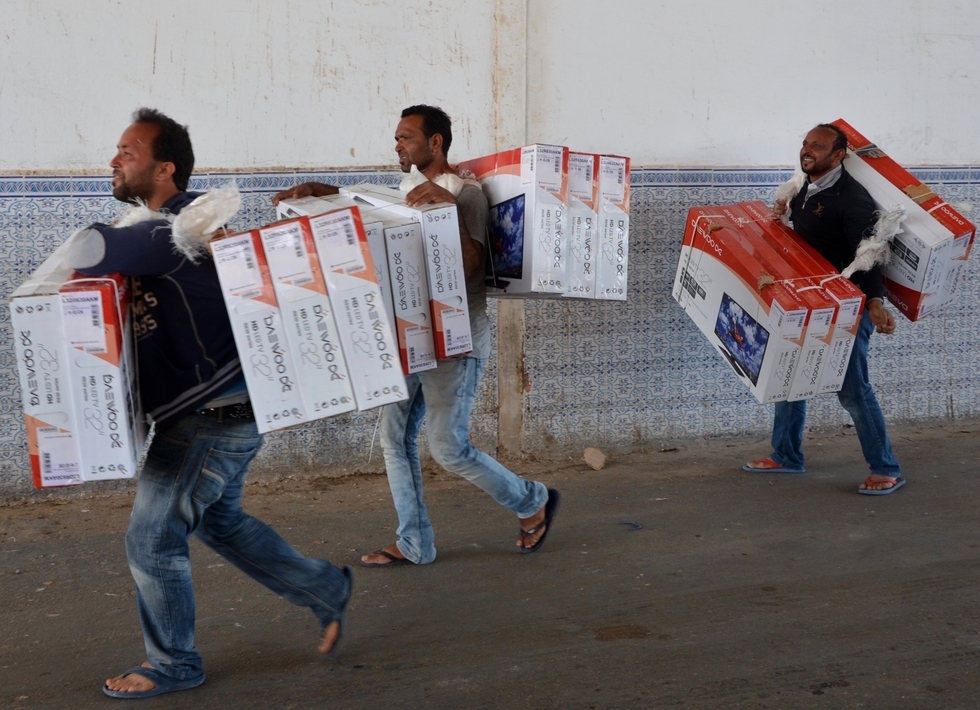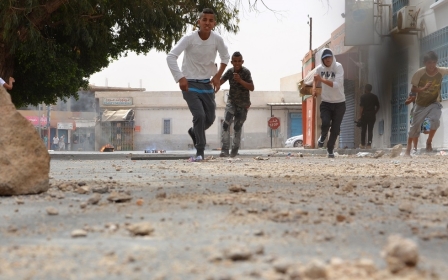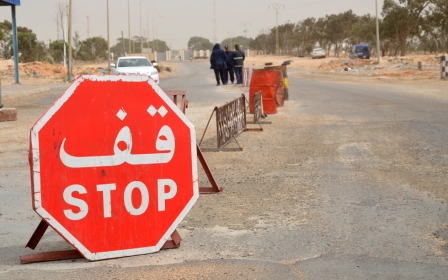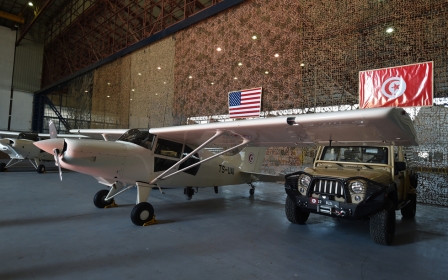Trade resumes at main Tunisia-Libya crossing after protests

Border traffic between Tunisia and Libya resumed Saturday after the two countries reached a deal to lift a trade blockade at the main frontier crossing after angry street protests.
The breakthrough came when an agreement was reached late Friday on customs duties for goods passing through the Libyan town of Ras Jedir, local governor Tahar Matmati said.
The accord provides for the establishment of a single customs duty for goods, Matmati said, adding that a joint monitoring committee would oversee the deal.
Libyan border officials halted all freight traffic through the crossing at the end of April in an attempt to stop the smuggling of fuel, which is much cheaper across the border.
The closure sparked demonstrations on the Tunisian side and a strike Wednesday in the impoverished town of Ben Guerdane, where the economy is heavily dependent upon trade with Libya, both legal and contraband.
On Monday, police used tear gas to disperse a protest by hundreds of demonstrators.
Ben Guerdane, one of the North African nation's poorest towns, was also hit by militant violence in March from across the border that killed seven civilians and 13 security personnel as well as 55 militants.
On Saturday, Libya's LANA news agency cited an official in the Libyan town of Zwara as saying passenger traffic had been fully restored.
On the Tunisian side, lines of vehicles waited under the hot sun to cross, as security forces looked on, a correspondent said.
Tunisia has built a 200-kilometre barrier stretching about half the length of its border with Libya in an attempt to prevent militants from infiltrating.
Thousands of Tunisians have joined militant movements, including the Islamic State (IS) group in Syria, Iraq and Libya.
Last year, Tunisia was hit by three IS attacks targeting both the country's lucrative tourism industry and the security forces, killing a total of 72 people.
This week, the authorities launched a sweep that they said resulted in the arrest of 37 people, some of whom were involved in attacks on the country.
New MEE newsletter: Jerusalem Dispatch
Sign up to get the latest insights and analysis on Israel-Palestine, alongside Turkey Unpacked and other MEE newsletters
Middle East Eye delivers independent and unrivalled coverage and analysis of the Middle East, North Africa and beyond. To learn more about republishing this content and the associated fees, please fill out this form. More about MEE can be found here.




